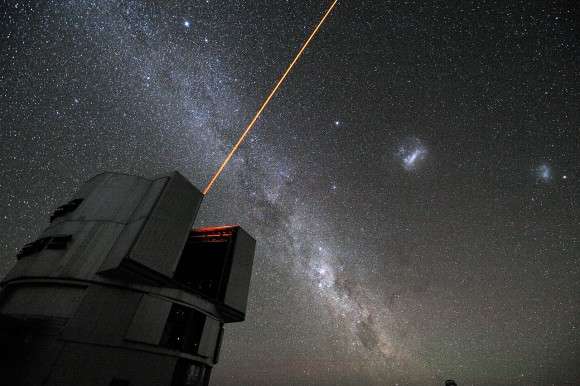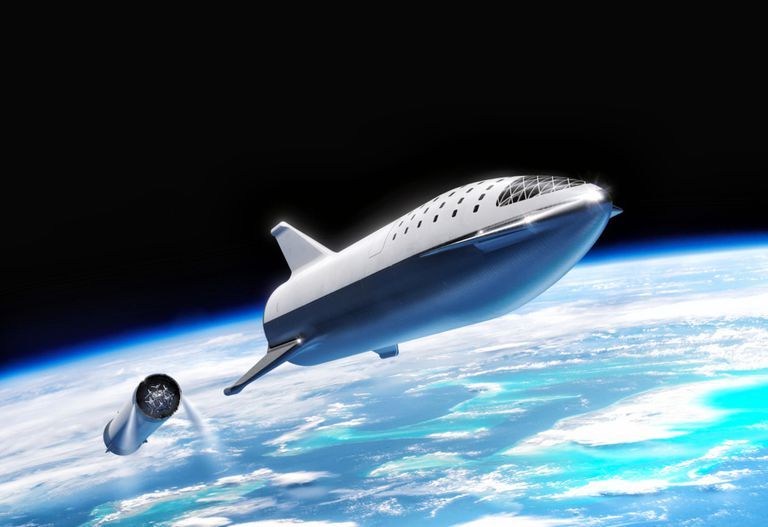
Could Finding Intelligent Life Benefit Humanity?
By Aryan Hashemi
Humanity is a very curious species. We ask every question we can about our place in the universe but we lack the answers to those questions. We can only assume and make estimations until we have better tools to help us understand different aspects of the universe. Asking questions is how we’ve advanced through the ages to where we are today. With humanity being very keen on not leaving questions unanswered, we have managed to research and discover new technologies through the questions we have asked through the ages. However, one question that has been there since we started to really look into the stars is: are we alone? It’s one of those questions that we have yet to find the answer to. It’s only a matter of time until we do find something that gives us an answer to that question. Our search for life has spanned many years and throughout those years, we have discovered many possible planets that we consider habitable planets where we assume life could be. These assumptions are solely based on our own understanding of chemistry and biology. There could be life in parts of the universe that we consider uninhabitable. It’s something that can only be proven when we do find life. Through the media, finding extraterrestrials is often portrayed as the end of the world or the enslavement of humanity. Although its not completely fiction, it isn’t the only outcome that we might see. Finding intelligent life could actually benefit our species instead of dooming us forever.
These assumptions are solely based on our own understanding of chemistry and biology. There could be life in parts of the universe that we consider uninhabitable. It’s something that can only be proven when we do find life. Through the media, finding extraterrestrials is often portrayed as the end of the world or the enslavement of humanity. Although its not completely fiction, it isn’t the only outcome that we might see. Finding intelligent life could actually benefit our species instead of dooming us forever.

More than 4000 habitable exoplanets have been discovered through our search for life in space. Those are just the planets that we’ve been able to sift through. There’s still dozens of more planets that we just haven’t confirmed yet. All of these planets could harbor life. We just have no way of making sure. This is where we can already see some benefits coming in from just the search alone. Because of the search for extraterrestrial life, or SETI for short, space agencies such as NASA have had enough funding to start creating stronger telescopes that can observe these exoplanets much better. The James Webb Telescope is what has come out of this funding. Launching later this year, this telescope will be able to give us a clearer image of the atmospheres of habitable planets we have so we can better determine their compositions. This means that we will be able to determine if a planet could have life on it or not. However, this telescope is just a step in a much bigger field. Innovations such as these will help us discover and create countless new technologies that will benefit humanity in numerous ways such as giving us the tools to explore and further research habitable planets that we consider “out of our reach” or it could possibly help us discover more about the planets here in our own backyard like Mars or Jupiter. The saying “if there’s a need, there’s a way” perfectly describes humanities determination to discover more about our world and the worlds around it. We will innovate and we will invent new technologies that will impact our entire species. The search for life itself breathes innovation. Nevertheless, the benefits don’t stop there, actually finding extraterrestrial life brings us a whole new world of rewards to reap. 
Our search for life has so far shown very little results compared to our expectations when we first started SETI. In the 60’s and 70’s, the golden age for space exploration, we had thought there was little green men on the surface of Mars that were coming to kill us. There were countless “UFO sightings” across the U.S; when in reality the “UFO’s” were really just the American Air Force testing their new, highly classified aircrafts. Other than that, we only have countless assumptions and estimations on where life is and what they could be made out of, based off of the biodiversity of our own planet. Nonetheless, it’s inevitable that we will find some sort of life in the future. It’s when we do that will bring us great benefits to our technology but also to our understanding of biology. All known life of earth is carbon-based life. These means that carbon is the backbone of all life here on earth. However, this doesn’t mean other life in the universe is also carbon-based. If the case arises that we find life that isn’t carbon-based, it could completely change our understanding of biology. We would be able to determine of we really are similar to other life out there or if we are completely different. The Mars Perseverance Rover that landed on the Martian surface earlier this year in February has the job of determining if mars has/had life on it. This could be a revolutionary moment in biology if we do find something like a microbe. We would be able to study everything about it and its’ components. Perhaps bacteria that we find on other planets could give us breakthroughs in the medical field or give us the tools to make those breakthroughs our selves. Although biological benefits aren’t necessarily the first thing that comes to peoples minds when they think of finding aliens, it is a very big benefit nevertheless. Finding the composition of other life in space could also help us narrow down our search to planets with similar elements; which in turn will helps us find even more life. We just have to make sure we don’t recreate the book “The Andromeda Strain” with our research of biology from other planets. That would be bad.
In the end, we are still a long ways from being able to communicate or interact with aliens if we do find them, assuming they are not in our own solar system. However, finding them will benefit us through numerous ways. Despite the popular perspective of how aliens will come to hunt us down and destroy humanity, it’s not entirely what would happen if we did find intelligent life in the cosmos. Of course, it is hard to predict exactly what would happen if we did find life; but it’s safe to say that we would be able to benefit off of it’s discovery whether it’s technological or biological advances. What is important is that we continue SETI. It’s one of the biggest questions we have about the cosmos and we have a much better chance of finding an answer now than we did in the 1920’s-1990’s. If SETI continues, our innovation for space travel continues with it; which gives us a much better chance of finding life and a much better chance of understanding it. Although the search for life is important, it shouldn’t overshadow the issues we have created on our own planet such as climate change. We should be investing a majority of our attention into repairing our planet as it is the only one we have currently; unless Elon Musk some how manages to put us on Mars in the coming years. Regardless, humanities’ trek to the stars is gaining traction every year as new missions are being announced and new technologies are being created to test. The most recent development is NASA’s planned return to the moon in 2024 with the Artemis missions. It has been almost 50 years since we have put humans on another celestial body. After the Artemis missions, one can only imagine all the future missions that we could accomplish. The future of space travel is looking very promising for humanity, and so does it’s chances of finding life. Turns out the “final frontier” is really just the beginning of a new chapter for our species.

Here’s a couple videos similar to this topic:
References
1. “How Many Exoplanets Are There?” Exoplanet Exploration: Planets Beyond Our Solar System, https://exoplanets.nasa.gov/faq/6/how-many-exoplanets-are-there. Accessed 21 Apr. 2021.
2. “Can We Find Life? | The Search For Life.” Exoplanet Exploration: Planets Beyond Our Solar System, https://exoplanets.nasa.gov/search-for-life/can-we-find-life. Accessed 21 Apr. 2021
3. Crawford, Ian. “Why Looking for Aliens Is Good for Society (Even If There Aren’t Any).” The Conversation, http://theconversation.com/why-looking-for-aliens-is-good-for-society-even-if-there-arent-any-80700. Accessed 21 Apr. 2021.
4. “How Would The World Change If We Found Extraterrestrial Life?” Astrobiology Magazine, 29 Jan. 2015, https://www.astrobio.net/alien-life/world-change-found-extraterrestrial-life/.
Pictures
1. https://phys.org/news/2016-05-aliens-easier-previously-thought.html
2. https://www.astrobio.net/alien-life/world-change-found-extraterrestrial-life/
3. https://www.newscientist.com/article/2172774-are-we-alone-in-the-universe-science-says-its-a-definite-maybe/
4. https://www.nasa.gov/image-feature/james-webb-space-telescope-mirrors-will-piece-together-cosmic-puzzleshttps://blogs.biomedcentral.com/on-biology/2017/12/15/best-of-2017-genome-biology/
This article has explored the scenario in which humans interact with extra-terrestrial life. One of the difficulties facing humanity is the ever-growing threat of climate change. As a result, many believe that prioritizing space exploration and curiosity is meaningless. This article clearly demonstrates the benefits of exploring the cosmos and it’s potential technological benefits it may bring.
-Aryan’s brother, Ahad